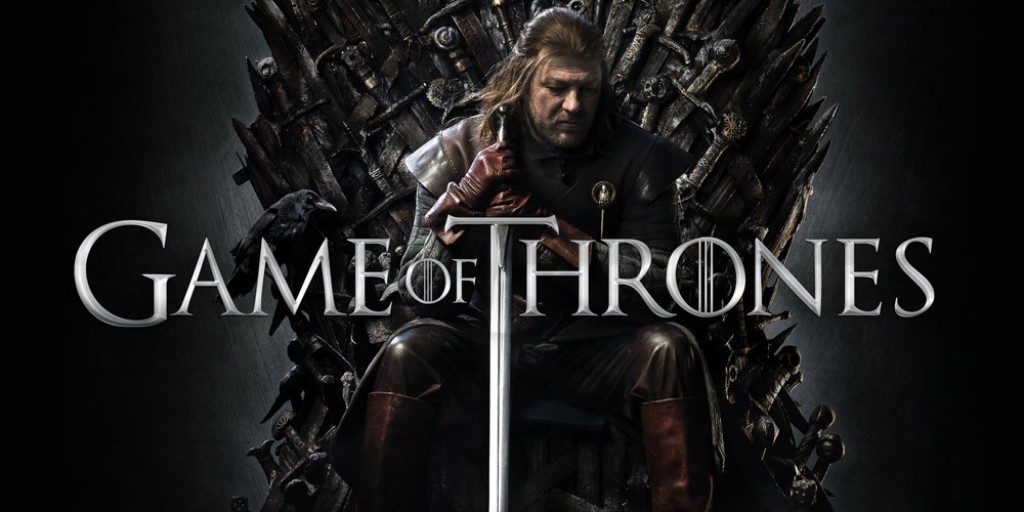Blog Post
State of the Culture: Porn, tolerance, and Game of Thrones
By Jonathon Van Maren
The culture update is a day late this week, because I’ve just been driving across the United States to Florida to engage students on university campuses on the abortion issue—but better late than never!
****
Melanie Phillips lamented in The Spectator that the idea of being “transgendered” was rapidly developing into an enforceable political statement, with the majority of society forced into being unwilling participants:
Once upon a time, ‘binary’ was a mathematical term. Now it is an insult on a par with ‘racist’, ‘sexist’ or ‘homophobic’, to be deployed as a weapon in our culture wars. The enemy on this particular battleground is anyone who maintains that there are men and there are women, and that the difference between them is fundamental.
This ‘binary’ distinction is accepted as a given by the vast majority of the human race. No matter. It is now being categorised as a form of bigotry. Utterly bizarre? Scoff at your peril. It’s fast becoming an enforceable orthodoxy, with children and young people particularly in the frame for attitude reassignment…
Indeed, you could say the West is very much on a journey. From divorce and lone parenthood to gay marriage, what was once regarded as a source of disadvantage or category error has been transformed into a human right. In the process, compassion has turned into oppression.
It is nice to see that a handful of secular journalists are speaking up against the creeping totalitolerance of gender ideology. I do have my doubts that it will last—such principled positions tend to evaporate once they become too inconvenient at cocktail parties.
****
That said, I was pleased to see a journalist in The Guardian of all places taking a stand for religious liberty in a column entitled “I’ve changed my mind on the gay cake row.” Peter Tatchell explains:
Like most gay and equality campaigners, I initially condemned the Christian-run Ashers Bakery in Belfast over its refusal to produce a cake with a pro-gay marriage slogan for a gay customer, Gareth Lee. I supported his legal claim against Ashers and the subsequent verdict – the bakery was found guilty of discrimination last year. Now, two days before the case goes to appeal, I have changed my mind. Much as I wish to defend the gay community, I also want to defend freedom of conscience, expression and religion.
The saga began in 2014 when the bakery said it was not willing to ice a cake with the words “support gay marriage” and the logo of the equality group Queer Space, claiming the message was contrary to its Christian beliefs. This struck many of us as anti-gay discrimination based on religious-inspired homophobic prejudice. Ashers believes that the relationships of lesbian, gay, bisexual and transgender (LGBT) people are wrong and should not be eligible for the status of marriage. They translated these beliefs into action and declined to make the cake. Ashers would have decorated a cake with a message celebrating traditional heterosexual marriage and promoting a Christian organisation. Surely this was an example of clear-cut anti-gay discrimination?
Gareth Lee’s legal case against Ashers was backed by the Equality Commission of Northern Ireland. It argued that the bakery’s actions breached Northern Ireland’s Equality Act and Fair Employment and Treatment Order, which prohibit discrimination in the provision of goods, facilities and services on the respective grounds of sexual orientation and political opinion. Last May a Belfast court found Ashers guilty of discrimination on both grounds, ordering it to pay Lee £500 compensation.
I profoundly disagree with Ashers’ opposition to same-sex love and marriage, and support protests against them. They claim to be Christians, yet Jesus never once condemned homosexuality, and discrimination is not a Christian value. Ashers’ religious justifications are, to my mind, theologically unsound. Nevertheless, on reflection the court was wrong to penalise Ashers and I was wrong to endorse its decision…
This finding of political discrimination against Lee sets a worrying precedent. Northern Ireland’s laws against discrimination on the grounds of political opinion were framed in the context of decades of conflict. They were designed to heal the sectarian divide by preventing the denial of jobs, housing and services to people because of their politics. There was never an intention that this law should compel people to promote political ideas with which they disagreed.
Finally, a journalist who is thinking just a little bit further ahead than the next new outrage.
****
The one issue many in the culture seem to be waking up to is the negative impact of pornography. Over at Strength to Fight, Canada’s only organization founded specifically to fight pornography, my colleagues and I have been highlighting the connections between pornography, rape culture, and human trafficking for some time. Now, some mainstream media sources are picking up the scent. From the Huffington Post:
According to the non-profit Fight The New Drug (FTND), which relies on dozens of studies for its pornography data, “men who go to prostitutes are twice as likely to have watched a porn film in the last year compared to the general population.”
FTND’s research also found that “when these customers show up, many come ready with porn images in hand to show the women they’re exploiting–many of which are human trafficking victims controlled by pimps–what they’ll be forced to do.” The organization cites a 2007 study of 854 women in nine countries that found 49% of women “said that porn had been made of them while they were in prostitution, and 47% said they had been harmed by men who had either forced or tried to force their victims to do things the men had seen in porn.”
In other words, when Americans watch porn, they’re fooled into thinking they are always watching free men and women engaging in consensual sexual intercourse. Contrary to the popular image of the porn industry, many women are being forced to have intercourse, be groped, kicked, beaten, etc.
Pornography is teaching an entire generation a violent new ideology of sex. The Sexual Revolution may, in fact, have been liberating—but it is becoming increasingly clear what was being liberated. It was not joy and happiness, as it turns out. It was the darker demons of human nature.
****
Speaking of porn and demons, Covenant Eyes just made what is sure to be an unpopular point—in a recent column, they’ve tackled the smash hit HBO television show Game of Thrones:
The hit HBO series Game of Thrones has won 26 Primetime Emmy Awards, including Outstanding Drama Series in 2015, and has 18.6 million people watching each episode, an HBO record. That’s roughly the same population as America’s third most populated state, New York. That’s a lot of people. That’s a lot of cultural influence.
What draws people to Game of Thrones? Certainly the artistry, the plot, the characters, the intrigue, the battles, the dragons, and, of course, the excessive and gratuitous nude sex scenes (including a graphic, lengthy rape scene that made news earlier this year).
Much like the Fifty Shades of Grey book and movie phenomenon, it brings up the age old question, “When it comes to sex and nudity, where is the line drawn between art and pornography?”
What makes a porno movie a “porno” and what makes Game of Thrones a record-shattering, Emmy-winning icon of popular culture? They both have plots. They both have lots of sex. I suppose the difference is Game of Thrones has more plot to it than it does sex, so it’s considered a drama and not a porno, whereas a porno has more sex than plot. And I suppose one would say the purpose of Game of Thrones is art, while the purpose of a porno is sex. Though that’s a very subjective statement that many in the porn industry would refute, at the end of the day, both purposes are money, but that’s another story…
If someone cropped out one of the graphic sex scenes from Game of Thrones and put that single scene online, by itself apart from any of the plot and intrigue, and your teenage son downloaded it, would you call it porn?
Yes, you would. So why is it that when we dress these scenes up with HBO glitz and glamour that all of a sudden they are socially acceptable? Is it because we actually love porn, but don’t want to admit that publicly? We don’t want to surf the dirty websites, but if we can get our porn via HBO (all on Netflix and/or Amazon Prime now, by the way), it’s like having our cake and eating it too. Porn without the social stigma. Porn that your spouse actually lets you watch. Porn you can rationalize…
And if you think you can somehow filter out the porn and only take in the art, you are deceived and double-minded as well. Porn does what porn does: as soon as it enters the scene, it removes all dignity and humanity. All that is left is body parts and the consuming of other humans. You can’t keep someone’s dignity once you have already devoured it.
You don’t get porn and human dignity; you get porn or human dignity.
Choose wisely.
Indeed. I would encourage you to read the entire article—it is well thought out, well written, and much needed. When it comes to films and television shows, people ordinarily opposed to pornography seem to prevaricate and hair-split: Well what is porn, really? I’m tempted to echo the pithy response of Supreme Court Justice Potter Stewart, who grew tired of a lengthy discussion on what constituted pornography and remarked drily, “I know it when I see it.”
****
I’ll leave you with one last thought, one that should worry porn watchers everywhere: There is a good chance that some day, your porn use will be exposed in a horrifyingly embarrassing fashion. After all, did you know that 88% of the top 500 porn sites have tracking elements installed? Vice reported on the story earlier this week:
Thirty million Americans regularly watch porn online, according to the Wall Street Journal. That’s a lot more than fess up to it, even in anonymous surveys: In 2013, just 12 percent of people asked copped to watching internet porn at all. But thanks to pervasive online tracking and browser fingerprinting, the brazen liars of America may not have a say in whether their porn habits stay secret. Porn watchers everywhere are being tracked, and if software engineer Brett Thomas is right, it would be easy to out them, along with an extensive list of every clip they’ve viewed.
The article muses that one day, hackers may use this data to get revenge on people. Porn addiction is so prevalent because porn use is so private—but can you imagine someone’s mother, wife, sister, and daughter finding out the filthy names of the porn movies he had been watching online? Can you imagine the shame? I’ve often wondered if the reason the Christian response to so many social evils is so muted because of the gargantuan guilt of the Christian community’s porn involvement. Shame and hypocrisy are incredibly effective silencers—and after all, how can we expect people who watch hundreds of naked people on their computer screens each night to be shocked by the public nudity of Pride Week, for example? Porn is the Sexual Revolution’s most viral and effective weapon—and it threatens to make quislings of us all.








